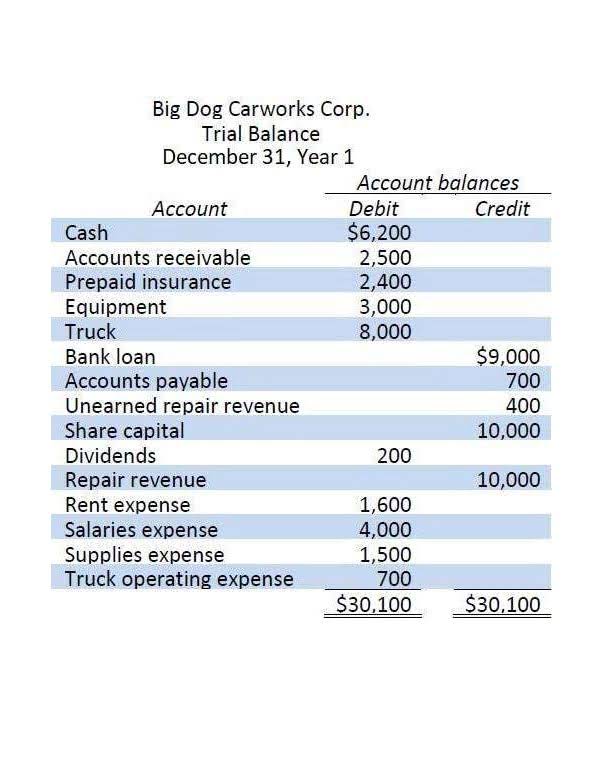
While both concepts are undeniably intertwined, subtle distinctions exist between them. For businesses and accounting professionals, understanding these differences is crucial for https://www.bookstime.com/ effective communication and a comprehensive grasp of financial management. Accounting is the systematic process of recording, summarizing, analyzing, and reporting financial transactions of a business or organization. It encompasses a broad range of activities aimed at providing stakeholders with accurate and timely financial information.

Chapter 6: Trial Balance and Rectification of Errors
- Understanding the difference between Accounting and Accountancy can guide individuals who are planning their education and career in the field of finance.
- It involves the measurement, processing, and communication of financial information to various stakeholders, including managers, investors, and regulatory authorities.
- Accounting is a technical process, and the focus tends to be on calculations required for creating financial statements.
- A career in accounting and accountancy offers a wide array of opportunities.
- It plays a significant role in framing policies and budgets for businesses and controlling the activities.
In contrast, the difference between accounting and finance is also evident in accounting’s role. Accountants are responsible for maintaining transparency and ensuring that financial records are accurate and truthful. In both fields, ethics is paramount to safeguarding stakeholder trust and maintaining business credibility.

Internal Auditing
Corporate accounting is defined as the process of handling and filling the financial data of the company for tax compliance. Forensic accounting is defined as the process of collecting and recovering the financial data of the company. Public contra asset account accounting is defined as the process of ensuring the financial statements and records of their clients.
What are the two main types of financial accounting?
It enables companies to maintain financial transparency, make informed decisions, and meet regulatory requirements. Whether it’s preparing financial statements, managing budgets, or conducting audits, accounting is indispensable for measuring a company’s financial health. Accounting is the process of recording and reporting financial transactions.


Meanwhile, business owners, top management, and supervisors apply accountancy to help them strategize based on the business’s financial situation. accountancy Collecting, recording, and putting a balance sheet in good form is under accounting. However, accounting is part of accountancy, so balance sheet preparation is both accountancy and accounting. On the other hand, financial report interpretation and making decisions based on the information in accountancy. Accountancy provides practices, principles, and the framework for collating, processing and using financial data. Accountants rely on these concepts to generate reports for management and regulatory purposes.
- It is vital for businesses and individuals in these fields to stay abreast of these trends.
- Accountancy gives accounting a framework and practices which an accountant makes use of to collect identify and record all the financial as well as the non-financial transactions.
- Both finance and accounting professionals juggle multiple tasks, deadlines, and projects daily.
- International accountants help companies navigate regional, national and local laws and regulations.
- Accountancy provides the framework through which financial transactions are recorded, analyzed, and reported, offering crucial insights into the financial health and performance of a company.
- Thus, both accounting and accountancy are significant aspects of effective management and decision-making of the firms.
- In accounting, even a small mistake can cause significant financial discrepancies, making precision critical.
- They are the revenue recognition principle, matching principle, full disclosure principle, cost principle, and objectivity principle.
- Here, accounting refers to the process involved in recording the financial transactions of a business.
- An accountant is responsible for balancing financial accounts, as well as interpreting and recording the financial information of a business or company.
- Professionals in both fields must remain adaptable to effectively respond to these changes.
Internal auditing is when the company’s finances are audited by accountants who work for that company. It’s typically done by tax, financial or managerial accountants, depending on the audit’s purpose. Accountancy, on the other hand, is the profession or field of expertise that relates to the practice of accounting.
The branch of accounting which is concerned with the classification, accumulation, apportionment, and control of costs and preparation of reports, is cost accounting. Accounting is a business language in which the economic activities of the enterprise are recorded and presented. On the contrary, the profession opted by accountants is termed accountancy. According to the BLS, the entry-level education required for Accountants is a Bachelor’s degree.
ACCT 551 Taxation for Corporations (Graduate Level)
Accounting is a discipline based on varied terms, rules, principles, and standards which are required to be followed. It provides quantitative information concerning the economic activities of the enterprise that plays an important role in the decision-making process. Today’s employers are in a tough spot with employees leaving left, right, and center. Replacing employees is no easy feat, and it’s even trickier for roles like accounting that need a specialized skill set. That’s why you must do everything you can to hire good accountants for the long haul, and offering them competitive compensation is a great starting point.